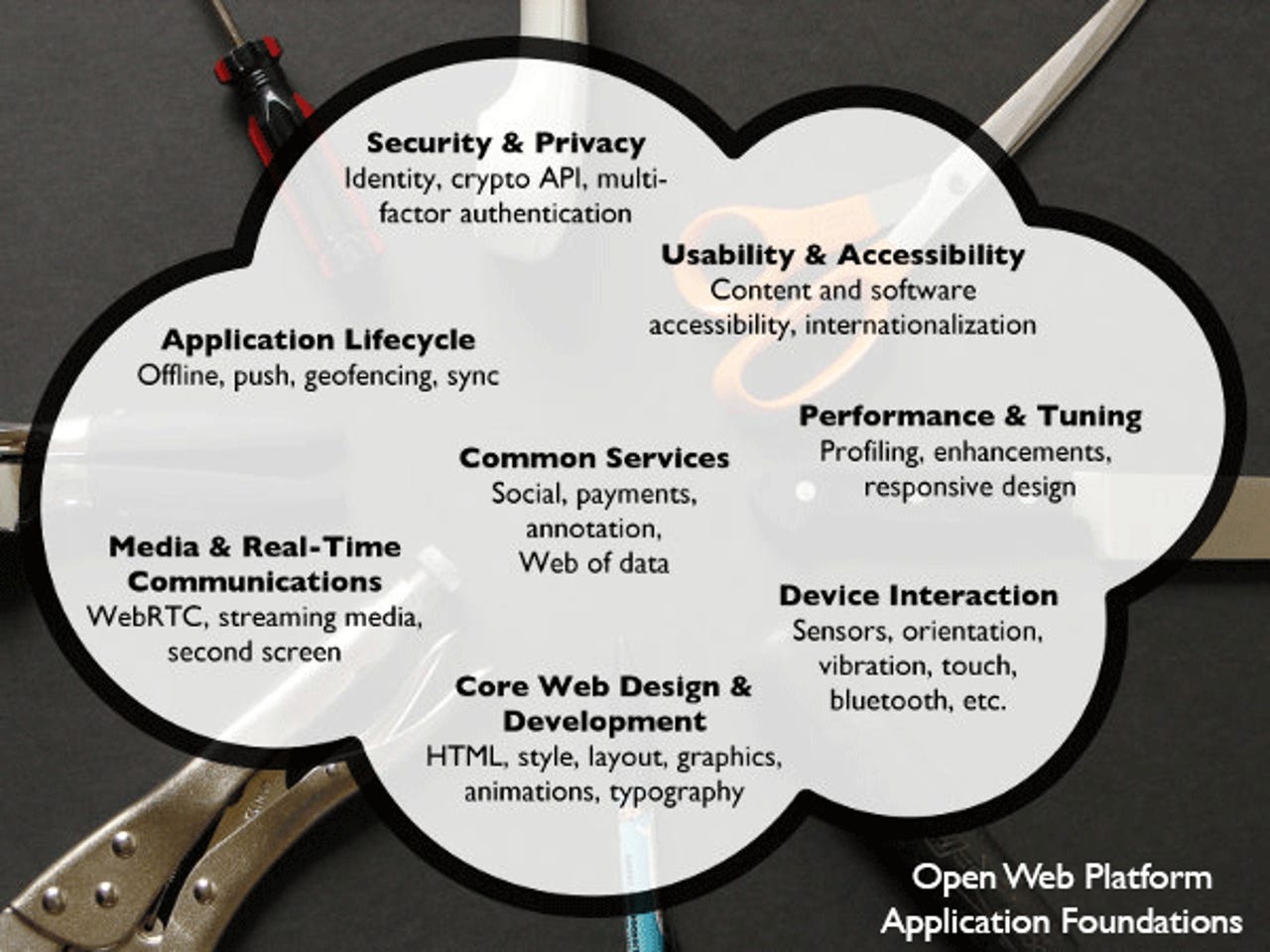Now HTML 5 is finished, W3C boss Jeff Jaffe discusses what comes next


The development of HTML 5 has been the major driver for web standards for the past five years or so, and it was finally sent as a Recommendation to the World Wide Web Consortium (W3C) at the end of October. Does that mean it's finished and done with? If so, what comes next?
Well, while HTML 5.0 has been finished, that doesn't mean development has stopped. HTML 5.1 is well under way and should become a Recommendation in 2016, and a first working draft of HTML 5.2 is expected next year. In sum, HTML 5 will continue for some time, and I don't see any prospect of an HTML 6.
However, there are clearly lots of things that don't fit under the HTML 5 umbrella, even the broad version that subsumes separate but associated things like CSS. How will those be developed, and what will the new project be called?
Dr Jeffrey Jaffe, the W3C's CEO, has proposed an answer in the continuing development of the Open Web Platform, of which HTML 5, CSS3, and JavaScript are core parts. His answer is to cater to developers by providing an "application foundation" on which they can build applications. In effect, the Open Web Platform will become the web's operating system.
The OWP's eight components, based on discussions within the W3C and at conferences such as September's Extensible Web Summit in Berlin, are as follows: Security & Privacy, Core Web Design & Development, Device Interaction, Application Lifecycle, Media & Real-Time Communications, Performance & Tuning, Usability & Accessibility, and Common Services.
Jaffe says: "Each Foundation represents a collection of services and capabilities that should be available for all applications. For example, the Security and Privacy Foundation includes capabilities such as crypto, multi-factor authentication, and resource integrity."
The Common Services foundation includes the web payments effort discussed here recently, annotations, data standards for the social web, and the 'Web of Data' -- which includes the semantic web.
In a blog post, Jaffe compared this to the development of operating systems. They start with low-level operations (memory management, support for devices) but gradually absorb higher-level functions such as networking, security, graphical user interfaces, and so on. These become the foundations on which new applications are built. He argues that similar functions should be provided as standards for web developers. "An apt metaphor is to call the programmable Open Web Platform of today the first generation operating system of the Web," says Jaffe.
In a telephone interview, I asked Jaffe how HTML 5 was progressing with regard to app development. He said: "It's going well, if you consider where HTML started. It started not at all for app development but for being able to read static websites on desktop computers. By contrast, today's Open Web Platform is a platform for building distributed applications with rich multimedia running on a wide variety of devices, so we've taken it quite far from its origins. It's made tremendous progress. On the other hand, I would be less than candid if I said that we were done.
"You know, you design a web page and it has to perform well on a whole variety of devices which have different physical capabilities, different processors, different screen sizes, and so on. That's partly a layout or responsive design problem and partly a performance problem, but it puts us at a very interesting pivot point. Completing HTML 5 is a major milestone in standardizing a whole collection of technologies we've been developing for the past decade, but we can't get complacent: there's so much more to do. That's why we're working on framing the next set of challenges."
It looks as though the future will be more modular than the past, following the successful modularization of CSS. "One of the interesting debates in the HTML community is whether we should do a similar modularization of HTML, so that different parts of the spec can get to the next level at different speeds," Jaffe says.
In other words, there's unlikely to be another Big Bang effort like HTML 5, even for the Open Web Platform. That might make it trickier for web developers and browser developers to move the web forward while maintaining general compatibility, but that's how the web works today.
"There are standards organizations that have a lock-step way of working where everyone agrees what the standard is, then it's frozen, then everyone goes off and implements it," says Jaffe. "Web standards are not at all like that. It's far more agile and responsive to do things in parallel. There's always going to be some browser that's behind in some feature, but for HTML 5, I think we're at a pretty good convergence point."
Read more